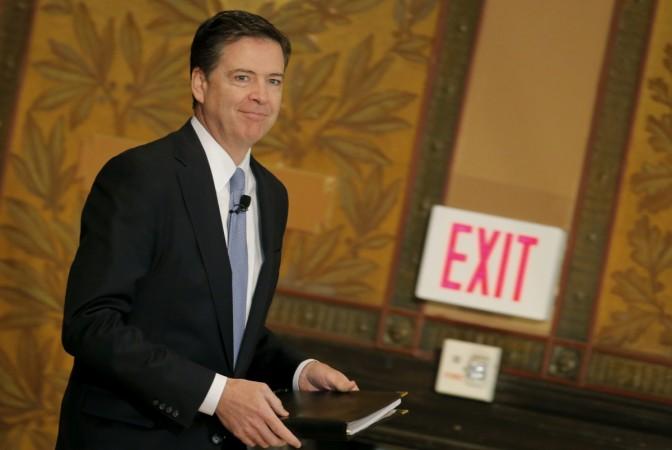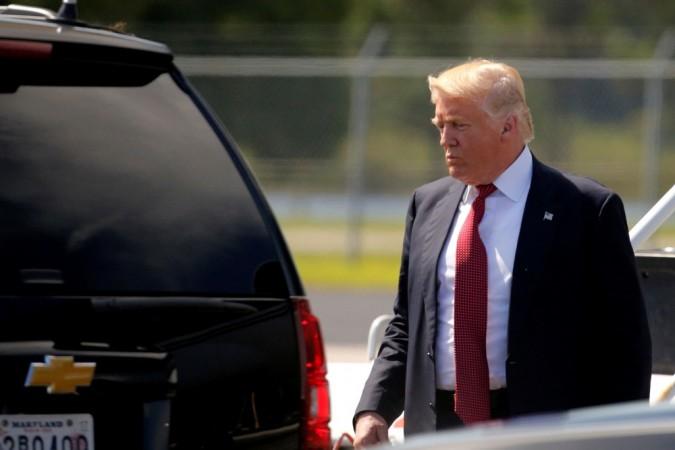
The White House said on Monday that President Donald Trump will not invoke executive privilege to block former FBI director James Comey, who was abruptly sacked by the president in April this year, from testifying before the Senate intelligence committee at the Capitol Hill on Thursday.
White House spokeswoman Sarah Huckabee Sanders said that the president's power to invoke executive privilege is "well-established." However, she said that Trump wanted to allow for a "swift and thorough examination of the facts" related to Comey's sacking as the FBI director and the several ongoing investigations into the election campaign's alleged ties with Russia.
Trump had abruptly fired Comey from the top position citing his mishandling of the Hillary Clinton's emails case last year. However, the former FBI chief's sudden firing raised suspicions that Trump may have done so as a cover-up for the Russia investigations Comey was actively working on.
This is the first time Comey will make public comments since his ouster from the FBI last month. He will answer questions related to allegations that Trump tried to persuade the former FBI director to drop an investigation into improper contacts between the former national security adviser Michael Flynn and Russian officials.
The Senate intelligence committee is also expected to ask Comey whether Trump asked him to pledge his loyalty to the president and whether he was sacked as the FBI director because he refused to obey the president's orders. The New York Times had previously reported that Trump had told a Russian delegation visiting the White House that Comey was a "nut job" and that his ouster from the FBI had eased "great pressure" on him.

The White House has, meanwhile, denied allegations that the president requested Comey to drop the case. Trump himself has denied all the allegations. However, if Comey goes against him and provides evidence that Trump indeed tried to persuade him to drop the case, then it would indicate that the US president obstructed justice. It could also set the ground for the possible impeachment of Trump.
Soon after Comey was fired, Trump had warned him against talking to the media, indicating that there may be recorded "tapes" of their conversations which could contradict his account. "James Comey better hope that there are no 'tapes' of our conversations before he starts leaking to the press!" Trump said in a string of Twitter posts.
Lawmakers in both the Republican and Democrat parties had urged Trump to allow Comey to testify publicly. It was earlier speculated that Trump would seek to invoke his executive privilege to prevent Comey from testifying publicly and keep their conversations private.
However, the US administration has tried to disrupt the investigation into Trump's links with Russia in other ways like directing all government agencies to not pay heed to the Democratic Party's requests for information.
After Comey was sacked as the FBI director, the investigation into the matter was taken over by his predecessor Robert Mueller, who will reportedly seek to probe whether Trump's campaign and its Russian contacts conspired to influence the results of the election by hacking into and leaking the emails of the Democratic Party and using propaganda outlets like Russia Today and Sputnik to spread false news on social media.
















